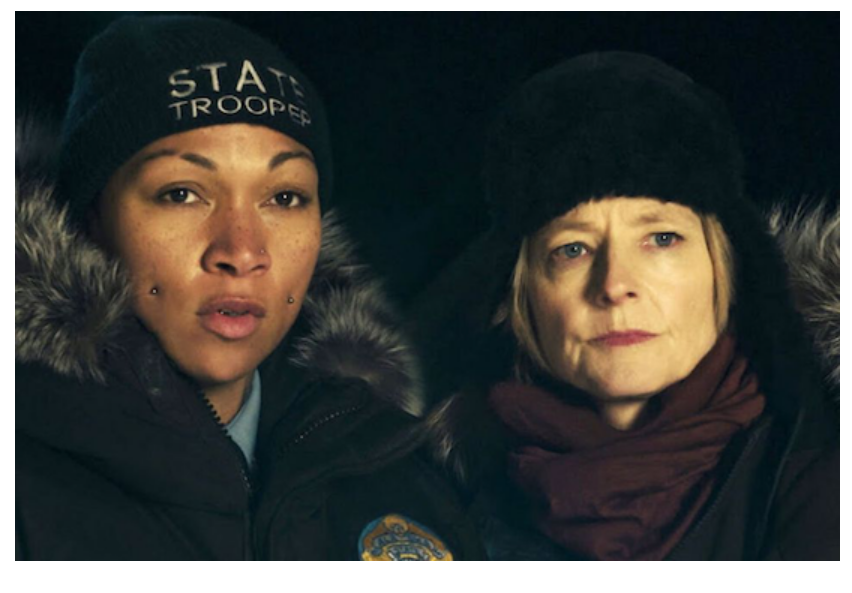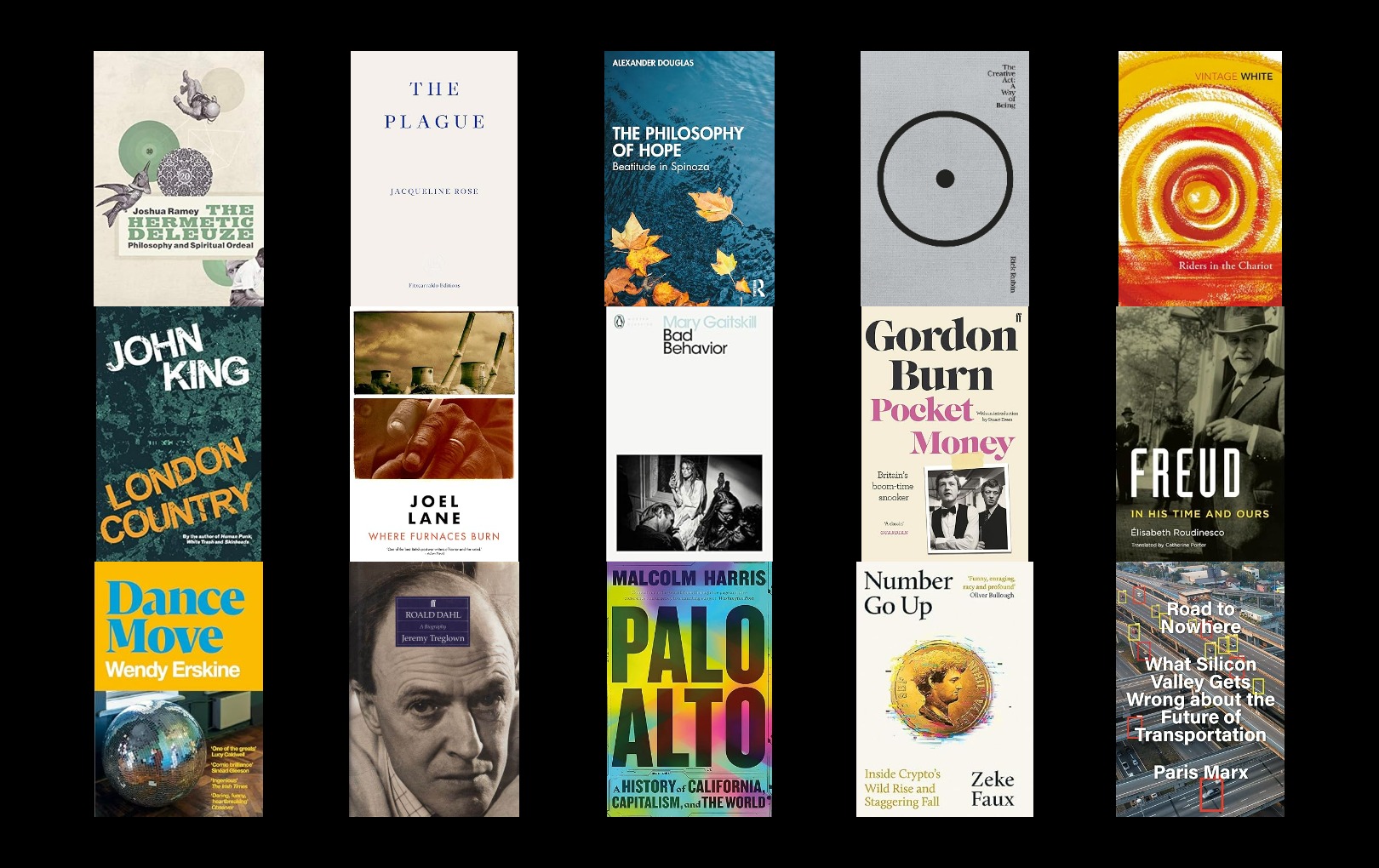
Brad Evans: I Know I Will Never Write a Better Book
If the measure of writing is to get as close as we can to the truth of existence, I know I will never write a
Unsurprisingly, there’s a lot of bombast in the new Oasis documentary Supersonic. Everybody’s busy going mad for it and making history and being the biggest and the best. In a lot of the interview footage there’s a kind of coked-up scattergun quality to both Noel and Liam’s speech; their answers often go on for too long, they’re seduced by their own hype, and can quickly descend into hyperbole and cliche.
There are, however, moments which cut through all this nonsense and which show something of what was good and interesting about the band. One such moment of insight comes during a 1994 TV interview that Noel and Liam are doing to promote Definitely Maybe. A journalist asks the brothers what fans can expect from the album and Noel answers, “Twelve songs about being alive and having fun.” There’s nothing earth-shattering about that description, of course, but its simplicity shows, at that moment, a pop star perfectly attuned to the role of his music. My friends and I loved that album when it came out and, while we knew that the songs as a whole made less sense than those by the more cerebral bands we listened to, but we could pick out the bits and pieces we did understand and use them to give voice to our fun, our boredom, our yearnings.
There’s not much about people like me and my friends in Supersonic, though (or in many discussions of Oasis, for that matter). For all the casual references to birds and girls that litter the film, women almost don’t exist at all as a reference point in the band’s world. I give them a free pass on this sometimes, telling myself that women are so basically absent in Oasis’s music that it can’t even really be counted as sexism, and I think there is some truth to this. On Definitely Maybe there are a couple of songs you could describe as love songs if you really wanted to, but there’s something non-specific about the desire, unattached to any particular person. The film’s footage from the early days fits in with this picture; you see the lads horsing around, recording demos, larking about as they watch the footy, and what’s obviously important to them all is having a good time with their mates. I was reminded of the boys that I used to hang around with as a teen, boys who were all too interested in their guitars/weed/box-fresh Adidas/each other to pay much attention to us girls (all of which was perversely part of their attraction).
There’s a lot of libido in the sound of that album, though: the growling reverb-heavy guitars, the sexy sneer in Liam’s voice on ‘Rock n Roll Star’, that note of rasping longing he strikes on ‘Slide Away’. At its best, Supersonic shows what was so great about Oasis in the early days and captures the visceral thrill emanating from the music and the gigs, the sheer excitement of actually being paid to be in a band for a living, the rage, the joy, all the stuff that their later bloated, self-indulgence drowned out. A few of the band’s more articulate interviews explain where some of that urgency came from; Noel, Liam and Bonehead talk about the days when everything in the band still seemed fragile and the threat of having to jack it all in, go back to their estates in Manchester and sign on the dole again was ever-present. It’s easy to forget that this is the world that Oasis came from and, as Noel tells us in more overblown language, this story hasn’t been repeated many times since, such is the way that the indie music scene has changed.
Supersonic begins and ends with film from one of the record-breaking 1996 Knebworth gigs, the point at which, it’s now widely acknowledged, everything started to go a bit wrong, when the excess and the ego took over. Even so, as I sat in the cinema and watched the band’s absurd rock star arrival by helicopter and heard the drama of the opening chords to ‘Columbia’, their opening song, i got swept up in it all again. Seeing them swaggering on stage, I was revisited by the strange paradoxical feeling I’ve had many times as a music fan: there’s part of me that that wants to be down the front in among the heaving, sweaty mess of the crowd, enjoying the music, but there’s another part of me that wants to to be the rock star, walking on stage to mass adulation and belting out those songs. The word ‘laddish’ gets used a lot to dismiss Oasis and their fans, often, in my experience, by other men, but this really only is part of the story; there’s nothing in that assessment that registers the experience of me and my friends and the girls like us, whose love for Oasis was a strange mix of desire, identification, ambition, and love of the music – we weren’t just standing in the crowd gazing adoringly at Liam. For all the machismo of the band themselves and the hype around them, I don’t actually remember those Oasis gigs as being particularly laddish and this seems borne out by the film, in which there’s always a decent group of girls and women representing down the front at their gigs.
Nevertheless, Knebworth remains a useful starting point for discussing the flaws and limitations of the band and, even more so, of the culture surrounding them. I was at one of those concerts and I remember even at the time feeling something wasn’t quite right; there was a consensus among me and my friends afterwards that it was “too big”. Some of us had been to the Earl’s Court gigs the previous year and loved them; they were also big, but they happened a few days after Morning Glory came out, and somehow seemed to make sense. Knebworth’s scale and the fact that it was happening at all seemed unconnected to anything else—there was no forthcoming or recent album to promote, it wasn’t part of a tour, it just seemed to be about making history for the sake of making history (and money, of course). It was also around this time that the establishment became properly interested in indie bands. It seems strange to me, now, that the Knebworth gigs were an item on the BBC news, but there they were; a rock concert had become about more than having a good time and was now being used as a symbol of something that had nothing to do with us (a thread which of course,continued with Blair and ‘Cool Britannia’).
Oasis’s transformation from a fairly successful band charting top-ten singles into stadium-rocking mega stars happened in a wider context of excess in the music scene. You can see now how they were egged on by those around them, and how their worst of their behaviour— the boozy bust-ups, the ungracious award acceptance speeches, the hotel-trashings—were encouraged and applauded by record company execs and managers, those who, in theory, should have known better. I’m not making excuses for the band – all that stuff was all there in the early days – but it was never the most interesting thing about them. As their career progressed, however, all this was magnified and fetishised and it turned them into something vaguely grotesque and ridiculous.
There’s obviously been no space allowed in Supersonic for reflection about any of this, though. The key figures in the film – Liam, Noel, Alan McGee – all have “no regrets”, “would do it all over again” and “wouldn’t change a thing”. Not only does this demonstrate a kind of tiresome bravado, typical of the period, it also partly explains the limitations of Oasis as a band and why, once their early energy and urgency had worn off, their music could only go so far. They were never challenged by those around them and couldn’t be bothered to do it themselves.
Supersonic reminded me, on a very visceral level, of all that I adored about this band; but in so many ways it reproduces the sexism of the music culture it portrays. There are two women voices in the whole film; one of them is Peggy Gallagher, who gives moving accounts of her arrival in Manchester from Ireland, of her relationship with her abusive husband and of how she finally plucked up the courage to leave him. The other is Christine, the Oasis road manager, who appears as a kind of good-natured, long-suffering mother figure. I wanted to hear more from Christine, about her relationship with these men that she worked with and supported, how she dealt with it as a music industry professional in her own right. This film desperately needed more from women like her, more from voices who weren’t so interested in the hype, to cut through the bombast and give us something other than superlatives. As it is, it reminded me of what so much of our music culture still is: conversations between and about men.

If the measure of writing is to get as close as we can to the truth of existence, I know I will never write a

To accompany his latest piece with Tariq Goddard in The Quietus on True Detective Season 4 and the legacy of In The Dust of This Planet, Eugene

As another turbulent year draws to a close, the Repeater team put forward their favourite reads for the festive season. Publisher, Editor, and Author Tariq

If the measure of writing is to get as close as we can to the truth of existence, I know I will never write a

To accompany his latest piece with Tariq Goddard in The Quietus on True Detective Season 4 and the legacy of In The Dust of This Planet, Eugene

As another turbulent year draws to a close, the Repeater team put forward their favourite reads for the festive season. Publisher, Editor, and Author Tariq
